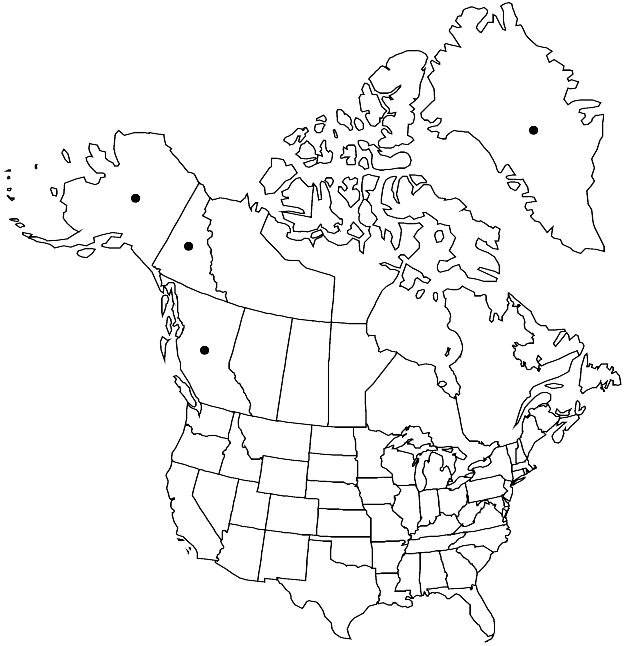Bryum oblongum
Meddeland. Soc. Fauna Fl. Fenn. 9: 127. 1883.
Plants gregarious, green to yellow-green. Stems 0.2–1 cm, gemmiform to strongly rounded julaceous. Leaves erect when moist, ovate, somewhat concave, 0.3–1 (–1.2) mm; base red; margins plane; apex broadly acute, not cucullate, not hyaline distally; costa not reaching apex, apiculus absent; proximal laminal cells quadrate or short-rectangular, 8–12 µm wide, 1–2: 1; distal cells of main (fertile) stem-leaves elongate-hexagonal, (30–) 35–60 (–70) × 6–12 µm, 4–5 (–6):1, walls thin. Specialized asexual reproduction absent. Seta red to redbrown, 1–2 cm. Capsule red to redbrown, ovate, 1–2 mm; hypophysis slender to weakly differentiated, sometimes slightly thickened and weakly rugose when dry. Spores 10–18 µm.
Phenology: Capsules mature Jun–Aug (summer).
Habitat: Neutral mineral soil, soil banks, boreal to arctic-alpine regions
Elevation: low to moderate elevations (0-1500 m)
Distribution

Greenland, B.C., Yukon, Alaska, n Eurasia
Discussion
Bryum oblongum is distinguished from the closely related B. blindii by the shorter laminal cells of the innovation leaves. A. J. Shaw (1981) enumerated other differences, including generally shorter exostome teeth in B. oblongum (300–400 µm) against longer teeth in B. blindii (400–500 µm). Recently, small, sterile, brownish, julaceous plants from alpine areas of New York have been collected that are similar to B. oblongum, but they have a strongly bulging reddish costa and shorter laminal cells. These collections are likely to represent an undescribed species.
Selected References
None.
Lower Taxa
"narrower" is not a number."narrow" is not a number.